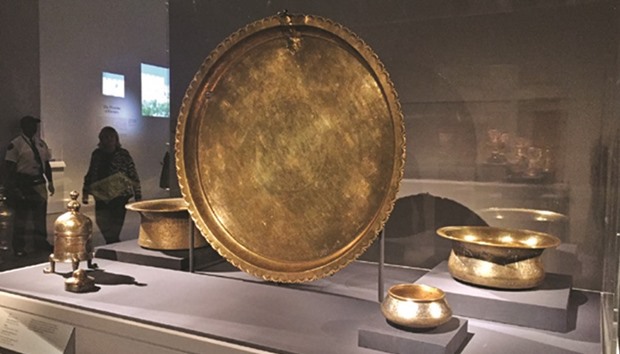Seven spectacular works from the Museum of Islamic Art’s (MIA) permanent collection are currently on show in New York City’s Metropolitan Museum of Art, (the Met) as part of a major exhibition entitled, ‘Jerusalem 1000–1400: Every People Under Heaven’.
This landmark exhibition, which is on show at the Met until January 8, 2017, demonstrates the key role that Jerusalem played in shaping the art of the period from the years 1000 to 1400.
The exhibition features some 200 works of art from 60 lenders worldwide, including the Museum of Islamic Art in Doha.
The objects from MIA date back to the seventh century and include a brass tray, silver basin and brass, gold, silver and black compound incense burner and incense box.
They were carefully selected by Dr Mounia Chekhab Abudaya, a curator at MIA, from what is widely considered to be one of the greatest collections of Islamic art.
The exhibition at the Met unravels the various cultural traditions and aesthetic strands that enriched and enlivened the medieval city. From around the year 1000, Jerusalem gathered unprecedented significance as a location, destination and symbol of diverse faiths.
Multiple competitive and complementary religious traditions, fuelled by an almost universal preoccupation with the city, gave rise to one of the most creative periods in its history. Through times of peace as well as war, Jerusalem remained a constant source of inspiration that resulted in art of great beauty and fascinating complexity.
HE Sheikha Al Mayassa bint Hamad bin Khalifa al-Thani, chairperson of Qatar Museums, said: “We are delighted to be so closely involved with the Met, one of the world’s leading cultural establishments, to lend them these treasures that convey the history of our region.
“Partnerships such as this one reflect our commitment of continued collaboration with many of the world greatest museums and cultural institutions, encouraging cultural dialogue and promoting intellectual exchange.”
A lavishly illustrated catalogue accompanies the exhibition. More than 50 scholars from the US, Europe, and the Middle East have contributed to the catalogue, including Dr Abudaya.
Qatar Museums regularly collaborates with cultural institutions from around the world to host exhibitions and loan objects from its expansive collections.

One of the exhibits from the MIA permanent collection, currently on show in New York City’s Metropolitan Museum of Art.
